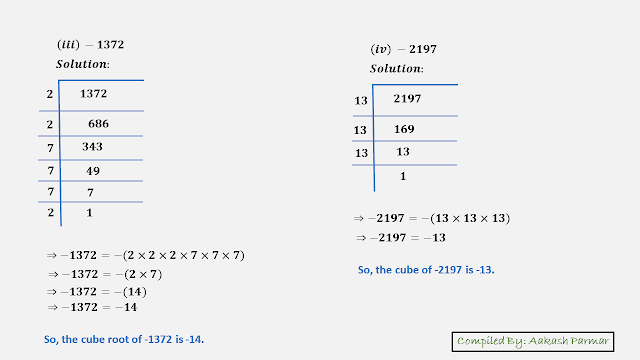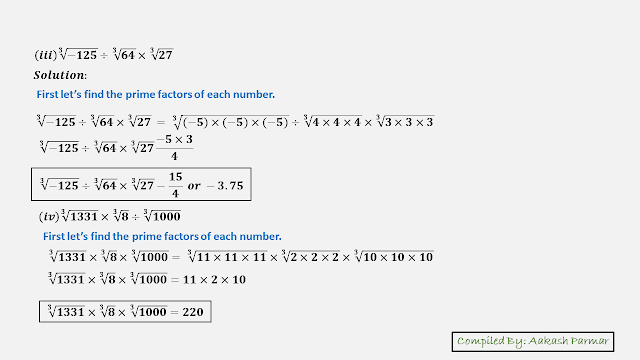HOOKE'S LAW Introduction In physics, Hooke's Law is one of the fundamental principles governing how objects deform under external forces . Named after the 17th-century British physicist Robert Hooke, this law provides a crucial understanding of the behavior of elastic materials, such as springs and rubber bands. Whether stretching a rubber band or compressing a spring, Hooke's Law helps explain what happens when forces act on these materials. What is Hooke's Law: Hooke's Law states that the force F needed to extend or compress a spring by some distance x is proportional to that distance. Mathematically, it is expressed as: F= -kx Here k represents the spring constant, which is the measure of the stiffness of the spring, and x is the displacement from the displacement position. The negative sign indicates that the force exerted by the spring is in the opposite direction of the displacement. Understanding the Spring Constant: The spring constant k is a critical co...
Cube and Cube Roots
Exercise 3
If you have any confusion regarding any question, you can ask using comments.
Follow us on Facebook for more such updates.
Follow us on Facebook for more such updates.
Facebook : https://www.facebook.com/studiologyblog/posts/pfbid02xu5fPaoCFMuJMaR1N2rLbHLsCvzF37nSM7962L9QShQSrF9twEA5oBAQW8gVyhR4l
Subscribe to our YouTube channel: https://www.youtube.com/@educationalworld9734

























Comments
Post a Comment